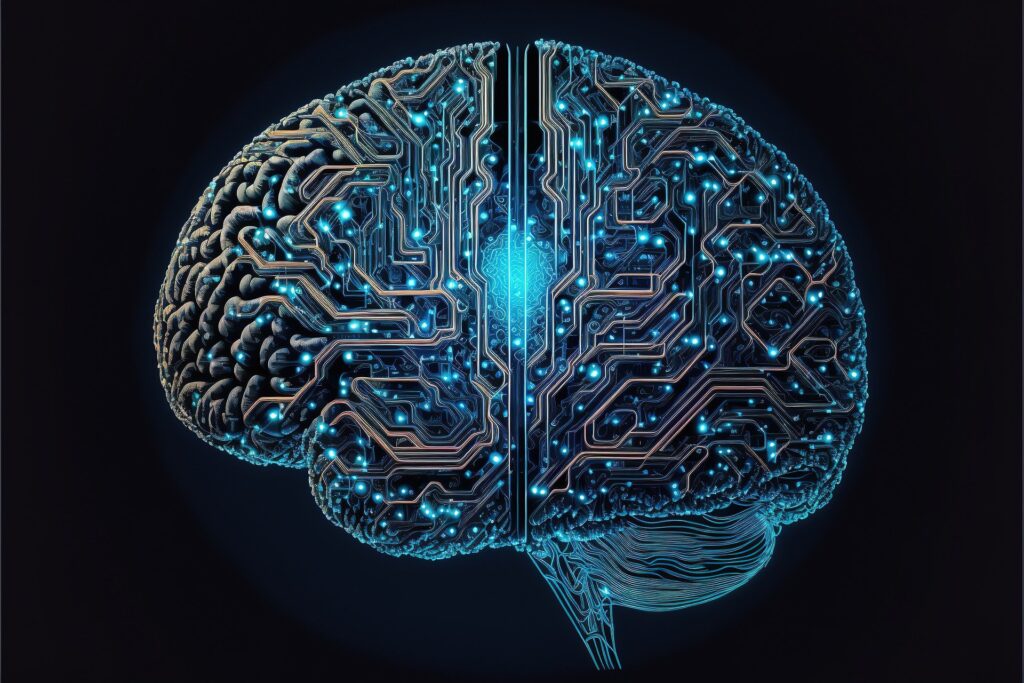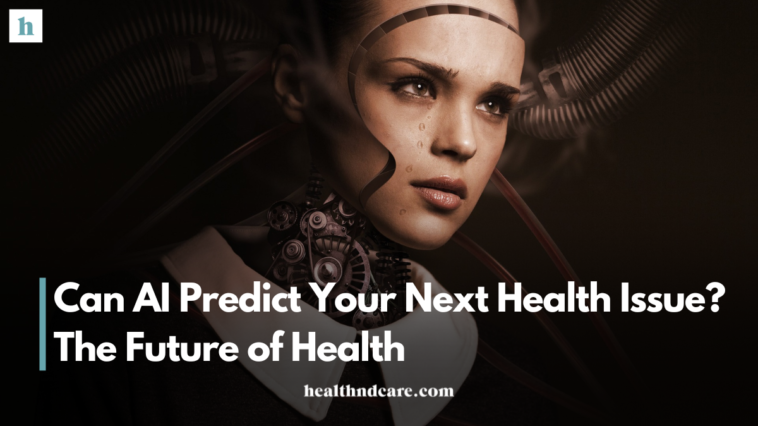Introduction:
Artificial Intelligence (AI) has been changing many aspects of our lives and healthcare is one area that hasn’t been left behind. AI can be a game-changer when it comes to diagnosing diseases and personalizing treatment plans. Can AI Predict Next Health Issue?
But what if an artificial intelligence could predict your next health issue before you show any symptoms? This is the promise of AI-driven preventive care – a future where technology doesn’t just treat but also prevents illnesses.
The Science Behind AI in Preventive Care
Understanding Predictive Analytics
At the center of its role in preventive care, predictive analytics is the key function of AI. By reviewing enormous sets of data, it may single out patterns which could suggest future health problems. Often these patterns are too intricate for humans to notice. But they can be critical in predicting conditions such as diabetes, heart disease or even some cancers.
Data Sources for AI Predictions
There are different sources of information that help artificial intelligence make predictions. Electronic health records (EHRs), genetic details, lifestyle records among others including wearable devices too. With this data merged together, an AI system can come up with a holistic representation somebody’s wellbeing. Which shows potential hazards towards their health. Thus guiding them on what prevention measures they should take.
How AI is Transforming Preventive Care

Early Detection of Diseases
Among other areas where this technology works well is early detection for diseases under prevention care using artificial intelligence. Systems like algorithms that analyze medical images very accurately indicating if there are any initial stages concerning disorders. Such as lung cancer or Alzheimer’s disease so that treatment becomes more effective. While improving outcomes greatly because they were caught earlier enough.
Personalized Health Monitoring
Apart from predicting diseases, another thing which makes artificial intelligence outstanding in preventive. Healthcare sector is personalized monitoring based on individual needs rather than generalizing everything.
For example, wearable having continuous tracking capabilities enabled by deep learning. Algorithm continuously monitors physical activities alongside vital signs even sleep patterns too. Which may warn users when there are potential risks for health problems. Thus allowing them take action promptly before minor issues become serious complications.
Customized Preventive Strategies
The strength of AI in analyzing personal data creates room for customized preventive strategies. Rather than using a universal approach. It can recommend specific lifestyle changes, dietary modifications or medical screenings that suit one’s risk factors. Best instead of taking everyone through the same process which might not work out well in some cases. Due to differences between individuals regarding their exposure levels towards various hazards such as pollution among others.
This shows us how deep this thing could go with regard to our well being if given chance.
The Challenges and Ethical Considerations
Data Privacy Concerns
Despite numerous advantages associated with application of artificial intelligence within prevention care. Data privacy remains an area full of challenges particularly due to large volumes involved. It raises questions about storage methods used, sharing procedures followed as well protection measures employed.
When dealing with personal health information required by AI systems for making predictions. Therefore, strong security controls must be put in place backed up by clear policies. That govern these activities thereby ensuring trust among members public is maintained throughout this process.
The Risk of Over-Reliance on Technology
Another challenge revolves around over dependence on technology. Concerning decision-making processes related to an individual’s health status. Because while they provide valuable insights; healthcare professionals’ judgment should still prevail above everything else. Since errors could occur within the system. Leading either misdiagnosis or wrong treatment recommendations being made.
The Future of Preventive Care with AI

Integration with Healthcare Systems
In conclusion, future developments expected from artificial intelligence in preventive care will only materialize if it gets integrated into current healthcare systems where expertise exists. This implies that proactive nature needs adoption through combining insights derived from AI with those already possessed by medical practitioners. So as create efficient structures capable of delivering timely responses.
Whenever necessary during emergency situations or routine checks ups depending on circumstances surrounding each case. Therefore, tech firms should collaborate with healthcare providers. While involving relevant regulatory bodies during integration process to ensure that tools used are not only efficient. But also ethical in their operations as well.
Enabling People to Manage Their Health
AI in the end has possibilities of empowering people to manage their health. Artificial intelligence can enable individuals to select from a variety of lifestyle options and medical treatments by offering personalized information and timely warnings. This means that society will be healthier. Since most diseases are caused by poor living habits. Which lead into them being prolonged while there should have been prevention measures taken up front instead of treatment only.



